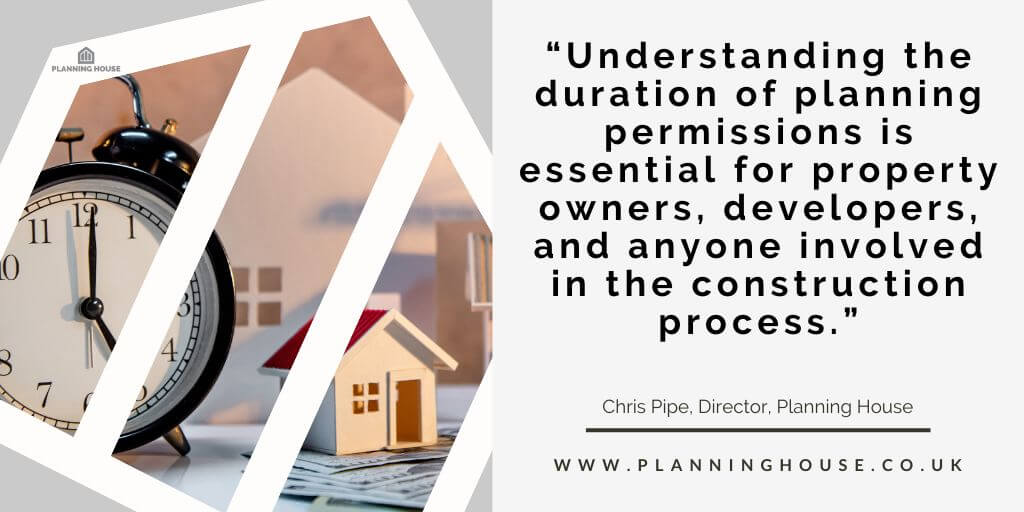Planning permission is a crucial aspect of any construction or development project. However, one common question that arises is, “How long does planning permission last?” Understanding the duration of planning permissions is essential for property owners, developers, and anyone involved in the construction process. In this article, we’ll consider the intricacies of planning permission duration, guided by English planning laws and regulations.
What is Planning Permission?
Before we explore duration, let’s briefly cover what planning permission entails. Planning permission is the official consent granted by local planning authorities or planning departments for the construction, alteration, or change of use of buildings or land. It ensures that proposed developments comply with local planning policies and regulations.
Duration of Planning Permission
In England, planning permissions typically have a lifespan of three years. This means that once granted, the permission remains valid for three years from the date of approval. During this period, construction or development work must commence to initiate the project lawfully.
It’s important to understand that the clock starts ticking on the validity of planning permission from the date it’s granted, not from the date when the development work begins. This means that even if there’s a delay in starting construction due to factors such as securing funding, finalising design details, or obtaining necessary permits, the three-year countdown still applies.
However, it’s worth noting that the definition of “commencement of development” can vary. In some cases, simply breaking ground and laying foundations or a pipe may constitute commencement. In others, more significant steps such as erecting structural elements or making substantial changes to the land might be required, depending on your development.
It’s advisable to consult with the local planning authority to clarify what actions constitute commencement of development in your specific case.
It’s important that a material start on site occurs in advance of the expiry of the planning permission.
Conditions and Limitations
It’s important to note that planning permissions may come with specific conditions and limitations. These conditions might include restrictions on the type of development, the materials used, or the hours of operation. Failure to adhere to these conditions can result in the loss of planning permission.
There also maybe some conditions which require information to be submitted to the local planning authority in advance of development occurring. Failure to do this can result in a permission lapsing even if development occurs. Also don’t be caught out by timescales for discharging conditions this can take 8 weeks sometimes longer!
Check out our article Discharge of planning conditions and best practice for developers, which sets out the best practices for developers looking to master the art of discharge of planning conditions.
Loss of Planning Permission
In certain situations, planning permissions can lapse or not implemented correctly. This may occur if the development breaches planning regulations, if false information was provided during the application process, if the development is not in accordance with the approved plans or any conditions are not discharged.
In Conclusion
Understanding the duration of planning permissions is essential for navigating the complexities of construction and development projects. It’s crucial to comply with any conditions attached to the permission and to be aware of the potential for a permission to lapse if planning regulations are not followed. By staying informed and adhering to the requirements of planning permission, property owners and developers can ensure the successful completion of their projects within the bounds of the law.
Related Content
More information is available in our series of eBooks and Practical Guides which cover everything from the very basics of town planning to application processes and what developers need to consider. We have a whole section dedicated to all things related to Planning Conditions.
Planning House can help with all aspects of applying for planning permission, including providing assistance in applying for an extension of planning permission if your project is facing delays. Don’t hesitate to get in touch if you need some advice.


